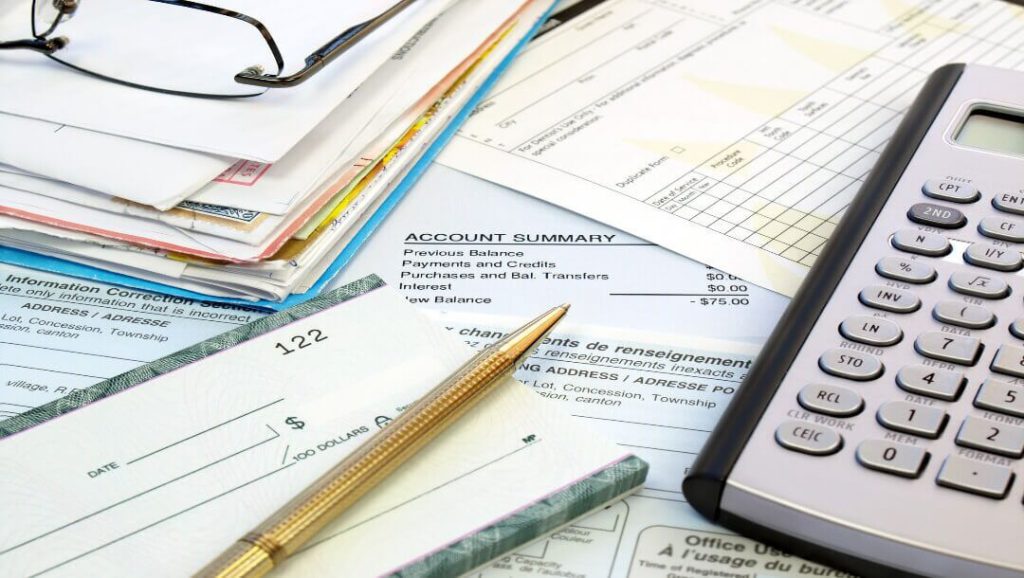
You have probably heard how important it is to have an emergency fund in case of, well, emergencies, especially after divorce when you are out on your own.
Conventional wisdom says that your savings should be able to cover about three to six months’ worth of expenses, including bills and other necessities. This formula seems logical at first; an emergency fund can help foster financial stability. However, is it possible to save too much?
According to a 2018 survey conducted by Bankrate, only 39 percent of Americans have enough savings to cover a $1,000 emergency. These survey respondents make up a plurality regarding financing a $1,000 crisis. The second most common response, at 19 percent, was to use a credit card to pay off the emergency over an extended time.
Given the extent of what Americans already owe their creditors (Northwestern Mutual’s 2018 Planning & Progress Study clocked the average personal debt exclusive of home mortgages at over $38,000), one might conclude that Americans need to save more for emergencies, not less. For the 28 percent of Americans without any savings at all, this may indeed be the case. It is certainly handy to have easily accessible funds during an emergency.
However, finance is not so simple, and not every method of saving for an emergency fund is the same. Here are a few issues to think about when it comes to your emergency fund.
Once you have a figure in mind (six months of living expenses), it’s time to get to work. Setting up a divorce emergency fund requires a plan and discipline. You also need the right information.
Get Divorce Help Today
Get advice from a qualified legal professional.
Settle Priority Debts
Before you can set up an emergency fund, you should settle all priority debt. This is simply a debt that can’t wait. Debt can consume spare resources that should be going to savings. If you have a payday loan, credit card loan, car loan, among other types of loans, focus on settling them first.
Knowing the amount needed in your emergency fund doesn’t mean much if you also have priority debt that leaves you with nothing. It’s advisable to settle the debt immediately since loans are expensive when paid over a long time. You stand to enjoy interest savings if you settle priority debt first. What’s more, you can channel these savings into your emergency fund.
Find Other Money-Saving Strategies
While settling priority debt in the shortest time possible can help you save money, you need other money-saving strategies. You can create a savings timeline with a rough figure of how much you need in your emergency fund.
If you plan on building your fund monthly, the importance of having a figure in mind that you will be depositing without fail can’t be overemphasized.
Allocating some money monthly for your fund is a good way of staying committed.
After getting rid of priority debt, you also need to ensure you have money for normal living expenses.
While an emergency fund is critical, you won’t build it consistently if you barely have enough money to go by.
If you don’t have anything left, you’ll need to get creative. It may take working extra hours or getting another job to reach your saving goal. If you can’t lower your monthly expenses, you need new sources of income that you can channel to your fund.
Make Your Money Work While Prioritizing on Safety and Liquidity
Keeping money aside isn’t enough. An emergency fund must have certain characteristics, as discussed above. Since emergencies are abrupt in nature, you should keep your money within reach. However, it doesn’t make sense to leave money in a bank account, given saving rates are usually lower than inflation. If you don’t want to lose money, you must find ways of making it work without tying it up in long-term investments.
The goal is to make your money earn and keep it safe and available for emergency needs. There are some options to consider in this regard. A high-yield account that offers more interest than the inflation rate is adequate. High-yield savings accounts will earn some money, allow emergency withdrawals and keep the money safe. Their low-risk nature makes them perfect for storing emergency funds.
Money market funds can also be safe havens for storing emergency funds. A money market account resembles a high-yield savings account in many ways and has the prospects of earning higher interest income. However, you need a larger initial deposit to open a money market account. You can consider starting with a high-interest saving account and transferring to a money market account after meeting the minimum balance requirements. Most money market funds can be accessed in emergency situations. The money is also safe since funds invest in assured investments and depositor funds are insured.
CD (Certificates of Deposit) accounts can also act as safe, ideal accounts for storing emergency funds. CD accounts earn interest but don’t limit access to funds. You can withdraw whatever amount in emergency situations. However, you’ll face penalty charges for any withdrawals that aren’t predetermined. The charges can deter unnecessary withdrawals, which is precisely what you want when building an emergency fund.
While there may be other options for building a divorce emergency fund, the above options have the most important properties. The best options will keep your money safe, earn some interest and give you access in emergency situations.
Automate The Process
Once you have established how much your emergency fund should have, generated leftover funds, and selected a suitable account with access and safety, you can automate the process. To remain consistent, you should ensure money is deducted automatically from your bank account to the emergency fund monthly. Setting up a direct deposit is recommendable.
Traditional Savings Accounts
A savings account at a banking institution or credit union is often the choice for housing an emergency fund. These accounts are easily accessible and FDIC insured, which guarantees your principal remains safe in a market collapse.
When your money is in a savings account, it earns about 0.5 percent of interest per year. The implication is your account will grow so long as you continue to save.
Nominally, this is true. But it is not necessarily true regarding your account’s real value; with such a low-interest rate, the value of your savings will likely decrease over the years instead of increase. Why? The U.S. inflation rate is currently at about 1.4 percent. That means the “dollar’s value will drop faster than it would grow in a savings account, making a traditional savings account earmarked for emergencies a poor choice for long-term growth, especially if that emergency never comes,” according to Jonathan Hornsby of Oak Tree Financial Services, LLC.
Credit Cards
Because a credit card raises the amount of debt you have in your name, it is generally an unpopular and unwise option. But not for everyone.
Suppose you can use that credit card responsibly — you have the means to pay both principal and interest over a designated period instead of only the interest. In that case, you could safely pay for an emergency using debt.
Investments
But suppose you are uncomfortable with the possibility of digging yourself into debt yet also want to counteract long-run inflation built into a traditional savings account. “You could invest your emergency fund and receive a higher yield than what you would ordinarily from letting your money sit in a low interest-bearing account, but this comes with serious potential consequences,” says Hornsby.
The issue with investing is that your money would not be as accessible to you. By withdrawing money too soon, you could face penalties as well. Also, investing can be much riskier than keeping your emergency fund in a credit union or bank. Of course, that is the trade-off and why your upside is higher, too.
Other Funding Options
Alternatively, you could put your money into precious metals, like gold or silver, tying your emergency fund’s value to the asset’s market value. Assuming the real value of the asset holds over time, the value of your emergency fund would as well. Should the asset’s value increase, that would be even better. But do note the double-edged sword; the possibility exists that the asset’s value could decrease over time.
The same goes for buying jewelry, artwork, antique cars, and other collectibles. If you already own such assets, you may choose to hold onto them for a rainy day and sell them should an emergency arise. However, selling could take time if you even find a buyer, making them riskier choices to rely on for emergencies.
Regardless of how you choose to provide for an emergency, make sure your choice won’t worsen your financial situation. If you are not keen on letting your money sit in an account waiting for a disaster that may never happen, consider one of the savings methods more conducive to growth.
Likewise, if you are breaking your back to make ends meet or have debts to pay off, think about not saving for an emergency at all, at least for now. Rather, determine what will work best for your short- and long-term goals, weigh each option’s pros and cons, and make your financial decision from there. Keep in mind your choices, like your financial picture, can change.
Securities are offered through LPL Financial, Member FINRA/SIPC. Investment advisory services are offered through Oak Tree Financial Services, a separate entity from LPL Financial.
If you need help with your Alabama family law case, please contact Summit Family Law P.C by phone at (256) 769-0508 or through our online contact form.


